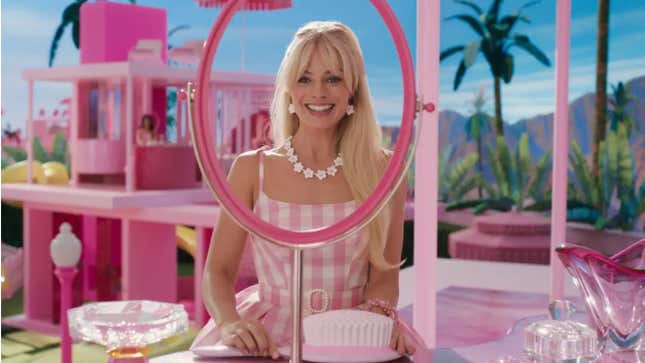So, Barbie Seems to Have Been an Outlier
A new study found that the pledges made by major studios to hire more women and people of color to direct more movies were largely "performative."


In 2023, Greta Gerwig’s Barbie was the highest-grossing movie of the year. But a new study published by USC Annenberg’s Inclusion Initiative this week suggests the plucky feminist hit was an outlier: Every major studio continued to hire mostly male directors for the top-grossing films of the year, continuing a years-long trend that’s kept women and people of color on the sidelines. This comes despite numerous studios’ pledges to hire a more diverse slate of directors since the rise of MeToo and amid a national reckoning for racial justice after police murdered George Floyd in 2020.
Per the Inclusion Initiative, of the 116 directors attached to the highest-grossing domestic films of 2023, only 14 (12%) were women, slightly up from 9% in 2022. (In 2018, just 4.5% of directors were women.) Sure, these more recent numbers are… an improvement, but it’s impossible to celebrate when such a gaping disparity remains. Broken down over the last 17 years, Universal Pictures led the way in employing female directors for major box office releases among big studios with a hiring rate of 9%, while Paramount Pictures came in last with a hiring rate of 1.6%. To be clear: Both of those numbers are very bad!
-

-

-

-

-

-

-

-

-

-

-

-

-

-

-

-

-

-

-

-

-

-

-

-

-

-

-

-

-

-

-

-

-

-

-

-

-

-

-

-








































